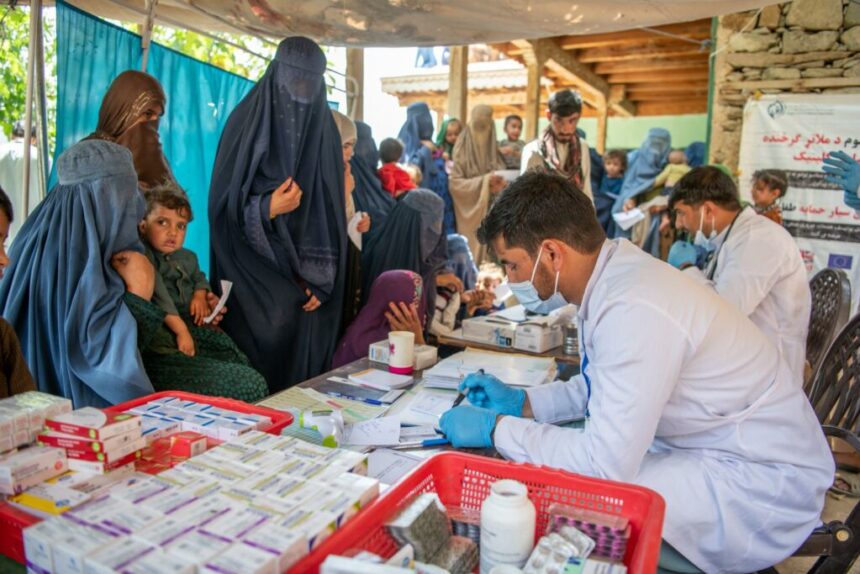RASC News Agency: The United Nations Children’s Fund (UNICEF) has announced that nearly 30,000 healthcare social workers are currently functioning across Afghanistan with its support. These workers are primarily focused on delivering essential medical care to children, often reaching them directly at their homes throughout the country.
This announcement comes amid growing concerns from international organizations, including the World Health Organization (WHO), which have highlighted the significant challenges arising from the Taliban’s ban on female employment in foreign aid agencies. These restrictions have severely hampered the delivery of humanitarian assistance and critical medical services, especially for women and children.
In its most recent report, the World Food Programme (WFP) disclosed that 12.4 million people in Afghanistan are experiencing “acute” food insecurity. Many Afghanistani citizens are left uncertain about where their next meal will come from. Furthermore, the WFP emphasized that the financial crisis following the Taliban’s return to power, coupled with the group’s prohibitions on women’s participation in the workforce, has critically endangered food aid programs. Over the past three years, the Taliban has imposed increasingly stringent restrictions on the Afghanistani population, with women bearing the brunt of these oppressive policies.
The grave situation underscores how the Taliban’s draconian measures have exacerbated the plight of millions, particularly vulnerable women and children, by obstructing the flow of essential healthcare and humanitarian services.






